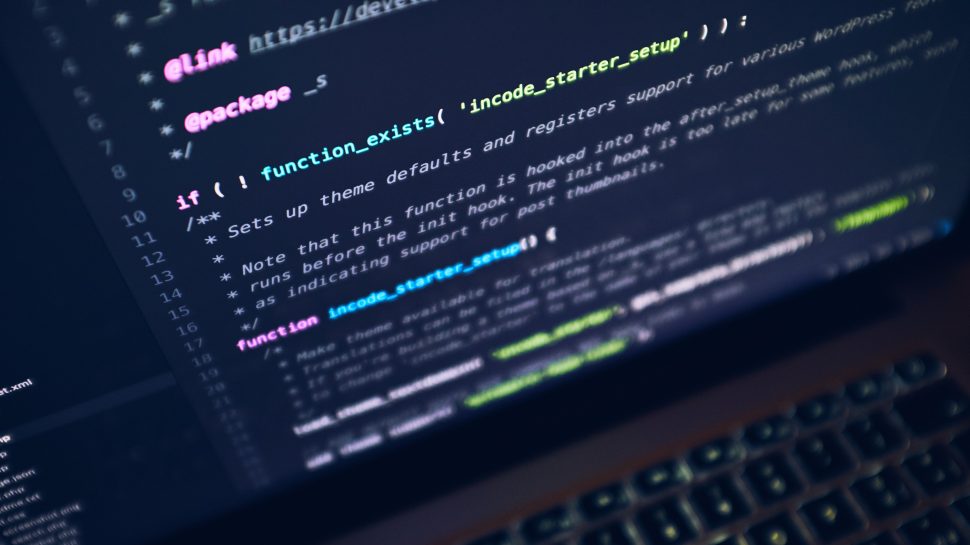Virus protection guide - protect your computer, smart phone or tablet

Knowing about virus protection and other internet security software available can protect you and your family from risks online. If you have a better understanding, you’ve formed a baseline to allow you to enjoy all the benefits of your computer, smartphone, and other devices with a little more peace of mind.
But unfortunately, knowing what’s what can be overwhelming.
We’ve put together a simple guide of the types of internet security software you might want to explore.
Anti-spam
Spam is the name given to emails, texts and instant messages sent to you which you have not signed up to receive. They are generally sent in bulk and often offer prizes or free products. Some spam messages are simply annoying uninvited advertising but others include links to inappropriate sites, viruses or requests for your bank details.
You should never open or reply to spam messages or click on links within spam messages as this may jeopardise your internet security. Some people prefer to keep one email address for work, family and friends and another for newsletters and online forms – so that if the latter account is spammed it can be deleted.
Email spam
You may find that your email program already relegates spam to a ‘junk mail’ folder. It is worthwhile checking the folder from time to time to ensure that no legitimate email has been filed there. Any spam email shouldn’t be opened and should be deleted.
Many email programs also use a secure setting called SSL (which stands for Secure Sockets Layer) when retrieving and sending email. This ensures that the information and password you use are encrypted whilst being transferred – this is much safer than transferring information without SSL. SSL settings are usually found within the account settings of your email program.
There are a range of spam filters available. A good spam filter will deliver the email you want to your inbox and relegate spam mail to the junk folder. It sometimes takes input from you to ‘teach’ the spam filter which mail should be sent to your inbox and which mail is junk – but this is easy to do and once you’ve given the filter the green light on email from a particular address, it will deliver email from that person to your inbox from then on.
Virus protection software
Computer viruses can be transferred to your computer through attachments in emails including image, audio and video attachments. You can also unknowingly download viruses from websites. Once on your computer, viruses can cause all kinds of problems including corrupting and deleting data and sending emails from your email address. Viruses are also referred to as ‘malware’, which is short for ‘malicious software’. This includes all software which is created with the intention of causing harm, spying or stealing information.
There are a range of virus protection software options, which can protect both your computer and mobile devices like phones and tablets. Any virus protection software should check for updates regularly and prompt you to update it. This is one of the best ways you can minimise the possibility of a problem, as the updates contain vital new functions to block the latest online threats. Virus protection is usually sold by annual subscription. There are a range of inclusions in virus protection software, and it’s worthwhile taking some time to ensure that you select the best software for your requirements.
Ransomware, another type of malware, can lock users out of their computer files or even their computer. As its name suggests, once locked out, the malware holds the files at ransom and asks that the user send money in order to get back access to their files. Paying up, however, does not guarantee that you will get your files back; therefore it is important to protect yourself from falling victim to these viruses in the first place.
Here are some virus protection software functions to consider:
Application control
Applications are the various programs you launch on your computer, phone or other device like Word, camera and email. Viruses and other malware can access your computer or device through applications. Application controls can be applied in various ways, from workplace administrators blocking applications from being used, to parents monitoring and controlling the apps downloaded on home computers, mobiles and tablets.
In some virus protection software, application control works by keeping an eye on the applications that your computer is launching, and checking these applications against a whitelist of ‘safe’ applications. For applications not on the ‘safe’ list, a pop-up window will appear asking you if you would like to run the application. If you haven’t launched and application, this should be a red flag, and you would not allow it to run.
Anti-theft
There are a range of functions which are particularly helpful if your mobile phone or tablet is lost or stolen. Device tracking applications allow you to see where your mobile phone or device is located on a map in real time. If your phone has been stolen and you are concerned about people accessing your information, you can lock the phone and wipe its contents remotely.
Parental controls
It’s difficult to always know what young people are using computers, phones and tablets for. Parental controls can provide important boundaries for young people and peace of mind for parents and guardians. Parental controls can include blocking certain sites, setting particular times for access to internet for each young person, controlling time on the computer, supervising chats and monitoring social media use.
Personal firewalls
We call the hardware or software used to ensure that hackers and viruses don’t reach your computer over the internet ‘firewalls’. A personal firewall is a software application focused on protecting one particular computer rather than a network of computers. The advantage of having a personal firewall is that your computer will be better protected even if other computers in a network are compromised; and when you change internet providers for example when using public Wi-Fi.
Personal VPN for Wi-Fi
When you use public Wi-Fi the network is generally unencrypted – which leaves you open to people nearby seeing what sites you’re accessing and potentially accessing the information you transmit, or even the information on your device, without your knowledge. A personal Virtual Private Network (VPN) application will encrypt all of the information you transmit over Wi-Fi – so that people around you will see that you are connected to the Wi-Fi, but won’t be able to see what sites you are visiting or any of your information. This is particularly important if you are using internet banking, online shopping or any sites requiring personal details, or your password and username.
Router settings on your home broadband router
Your home broadband router is the physical box which you receive from your internet service provider which transmits a Wi-Fi signal or is connected to your device by a cord to provide internet connection. Some simple adjustments can improve the security of your router, computer and devices. Re-name your router, and change the password from the default – this is a must-do action, create a guest password and review the security options. If you don’t use Wi-Fi, a network or any other options – turn these off.
URL filtering
A ‘URL’ is another name for the address you type into a browser to access a website. URL filtering, as the name suggests, is a safety tool which blocks certain types of websites. The websites are assessed on a range of indicators including content (words which flag that the website is dangerous or inappropriate), artificial intelligence (a variation on content scanning where intelligence about websites is built up over time); and blacklists – where known websites are blocked. URL filtering can also be used to block websites in certain categories including drugs and adult content.
Once you have selected the tools you wish to use to add extra protection to your internet use, remember to check the reputation of the provider first. As a general rule, you get what you pay for – free generally means there is a catch!

